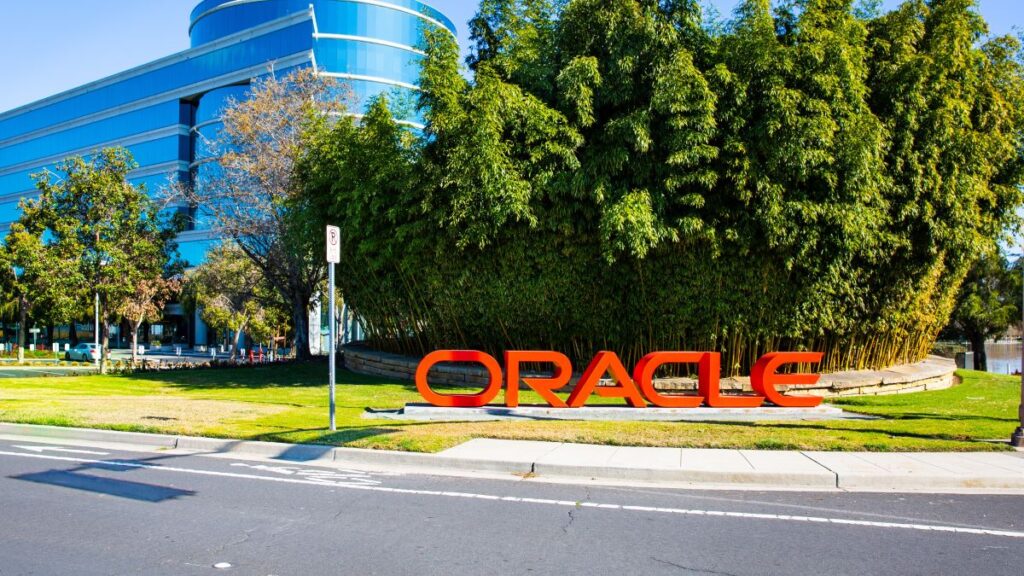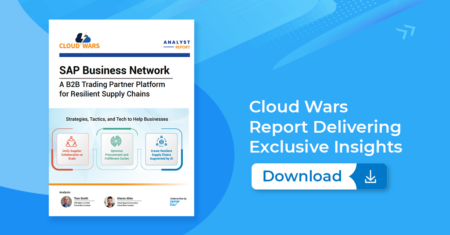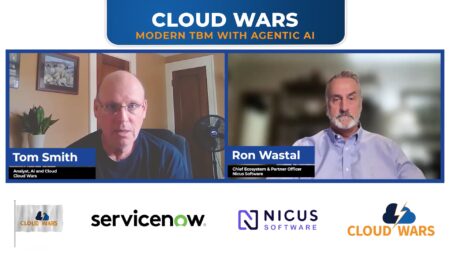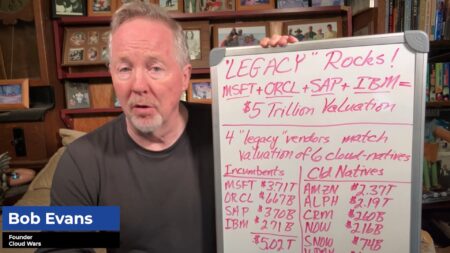
As Oracle and Epic march toward a head-on battle for supremacy in the huge market for electronic health records, the bromide about how “what got you here won’t get you there” will provide a stark example of why niche providers that dominated the on-prem world will be overmatched and pushed to the periphery in the modern world of cloud and AI.
Before offering some evidence to back up that claim, let’s first acknowledge how the companies are similar:
- Oracle was founded in 1977, and Epic was founded in 1979;
- the visionary founders of both companies (Oracle’s Larry Ellison and Epic’s Judy Faulkner) are still fully engaged, fully in charge, and are self-made billionaires; and
- both companies are fully committed to modernizing and automating parts of the healthcare business (Epic) or the entire sprawling industry (Oracle).
And before attempting to prove the claim made in the headline above, it’s only right and fair for me to acknowledge that Epic has been a major force for progress and advances in the wildly complex EHR field, and that Faulkner and her team deserve a great deal of credit for providing some vital technology solutions to 2,700 hospitals in 16 countries, with “190 million patients using Epic’s MyChart patient portal to manage their care online,” according to Epic.
But those numbers, while impressive, are a reflection of what’s becoming an increasingly distant and archaic past, fraught with all of the challenges that come with decades-old technology and particularly with trying to evolve not only that technology but also Epic’s corporate mindset into the cloud.
To Epic’s credit, about 20 months ago it agreed to a wide-ranging partnership with Google Cloud to “allow hospitals using the Epic electronic health records (EHR) technology to store records in the cloud and benefit from specialized tools.”
Ask Cloud Wars AI Agent about this analysis
And while Epic’s making some efforts to broaden its capabilities outside of its core EHR business, Larry Ellison has committed the full resources of his entire company to ensuring that Oracle Health can address not only EHR’s and adjacent segments but also the entire $16-trillion healthcare industry.
While Epic is still relatively new to the cloud — it began offering some cloud-based solutions around 2020 — Oracle has become a world leader in cloud applications, infrastructure, databases, security, partnerships, ecosystem, AI, and deployment options.
And Oracle has been dealing with everything from software integration to massive global deployments to complex governance issues for the world’s largest and most-complex organizations for more than 30 years.
It also has industry-specific expertise across not only healthcare but every conceivable related field, from phamaceuticals to supply chains to deep biological research to complex accounting and record-keeping and privacy.
Beyond the necessary tech capabilities, this competition will also at some point boil down to money because to modernize and automate the world’s largest industry will be enormously expensive.
As noted above, Faulkner’s built an excellent company, with annual revenue estimated to be close to $5 billion. But it remains a privately held company, whereas Oracle has a market cap of around $512 billion with massive cash reserves and an R&D budget that’s probably bigger than Epic’s annual revenue.
Of course, just having piles of cash isn’t enough in this innovation-crazy world — and Oracle has shown over the years and the decades that it can be as innovative and as technologically sophisticated as any company on Earth.
Final Thought
All this came to mind when I recently saw a press release from Epic about Oracle’s decision to become part of a government coalition of approved tech companies that will work together to “offer secure, smooth, and standardized sharing of health information between providers and payers, pharmaceutical companies, and government agencies.”
Epic took that occasion to issue its own press release that on the one (sweaty) hand welcomes Oracle to the fold and on the other attempted to position Oracle as a petulant brat with no intention of playing nicely with others: “Epic hopes that today’s Oracle Health announcement indicates that they are finally ready to take interoperability seriously—and to deliver the technology that patients and providers deserve instead of making distracting, untrue statements.”
Now, it’s certainly true that Epic faces a sharply uphill battle against a company with vastly greater technology expertise, vastly greater financial resources, vastly greater experience in working across complex industries, and vastly richer vision — so one might conclude that it had to lash out a bit to show some spirit.
But I think Epic will come to regret attempting to position Oracle as being the enemy of interoperability and a peddler of fish tales.
After all, Larry Ellison has said the buildout of Oracle Health is, for him, a very personal mission —and to the degree Ellison gives any thought to Epic as he undertakes that mission, Epic’s silly ankle-nipping will only serve to reinforce Ellison’s resolve.

AI Agent & Copilot Summit is an AI-first event to define opportunities, impact, and outcomes with Microsoft Copilot and agents. Building on its 2025 success, the 2026 event takes place March 17-19 in San Diego. Get more details.










